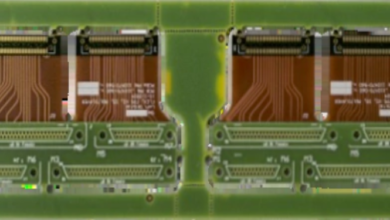Improving Industrial Efficiency Through Proper Oil Maintenance

Understanding the Role of Clean Oil
Industrial machinery relies on oil to function efficiently, reduce friction, and prevent wear. Over time, oil becomes contaminated with impurities such as dust, metal particles, and moisture, which can compromise equipment performance. Ensuring clean oil is a critical aspect of industrial maintenance, helping machines operate reliably and safely.
Lube oil filtration plays an essential role in preserving oil quality. It removes contaminants, restores the oil’s lubricating ability, and protects machinery components from damage caused by sludge, water, or solid particles.
Advantages of Lube Oil Filtration
Implementing effective lube oil filtration systems offers numerous benefits for industrial operations:
- Extends equipment life: Removing harmful particles reduces wear on moving components.
- Enhances operational efficiency: Clean oil minimizes friction, improving overall machine performance.
- Cost reduction: Reusing filtered oil decreases oil replacement frequency and reduces maintenance expenses.
- Environmental benefits: Filtering and reusing oil lowers hazardous waste generation and supports sustainable practices.
These benefits illustrate why lube oil filtration is integral to a robust maintenance strategy.
Key Components of Modern Filtration Systems
Modern lube oil filtration systems are designed for efficiency, durability, and ease of operation. Key components include:
- Multi-stage filters: Capture solid particles and sludge for cleaner oil.
- Vacuum dehydration units: Remove water and moisture to prevent corrosion and oxidation.
- Monitoring systems: Sensors track oil quality and system performance to maintain consistent results.
- Energy-efficient pumps: Minimize power consumption during filtration.
- Flexible installation options: Adaptable to various machinery sizes and oil capacities.
These features ensure that industrial lube oil filtration operations maintain high-quality oil while minimizing downtime.
Types of Lube Oil Filtration Techniques
Depending on the level of contamination and operational requirements, different filtration methods can be employed:
- Vacuum filtration: Removes water and dissolved gases, restoring oil’s chemical properties.
- Centrifugal filtration: Uses centrifugal force to separate solid particles from the oil efficiently.
- Mechanical filter systems: Capture fine impurities and maintain clarity over extended use.
Selecting the correct filtration method ensures optimal oil quality and machinery protection.
Operational Benefits and Safety
Maintaining clean oil through filtration provides tangible operational and safety advantages:
- Minimizes equipment failure: Reduces friction and wear, preventing unexpected downtime.
- Improves thermal management: Clean oil enhances heat dissipation in machinery.
- Supports sustainable practices: Reduces the need to dispose of used oil, minimizing environmental impact.
- Stabilizes performance: Machines run consistently with high-quality oil.
These operational benefits highlight the importance of regular oil filtration for industrial systems.
See also: The Role of Teachers in Implementing Effective Technology Integration
Best Practices for Filtration System Use
To maximize efficiency and reliability, operators should adopt best practices:
- Regular monitoring: Check oil quality and filter conditions routinely.
- Timely replacement of filters: Ensure filters and other consumables are changed as needed.
- Staff training: Equip personnel with knowledge of proper system operation and early detection of oil issues.
- Correct installation: Ensure proper system setup to achieve optimal filtration performance.
Following these practices helps achieve extended equipment life and reduced maintenance costs.
Economic and Environmental Considerations
Lube oil filtration delivers both financial and ecological advantages:
- Cost efficiency: Reduces oil replacement frequency and operational interruptions.
- Operational efficiency: Machines perform better with cleaner oil, reducing energy consumption.
- Sustainability: Filtering and reusing oil reduces industrial waste and environmental impact.
Investing in effective filtration systems ensures long-term economic and operational benefits while supporting environmentally responsible practices.
Technological Innovations
Recent advancements in lube oil filtration technology enhance efficiency and reliability:
- IoT-enabled monitoring: Allows real-time tracking, predictive maintenance, and remote supervision.
- Eco-friendly filtration media: Environmentally safe materials that maintain high purification efficiency.
- Modular designs: Portable units allow on-site filtration for large machinery systems.
- Comprehensive multi-stage systems: Combine filtration, dehydration, and degassing for thorough oil purification.
These innovations make lube oil filtration systems highly efficient, safe, and environmentally sustainable.
Choosing the Right Filtration System
Selecting the appropriate system is critical for operational efficiency:
- Operational requirements: Consider machinery type, oil volume, and contamination levels.
- Manufacturer reliability: Choose a trusted provider with a history of durable, high-quality products.
- Support and maintenance: Availability of spare parts, technical assistance, and staff training is essential.
- Compliance: Ensure systems meet industry safety and environmental standards.
Choosing the right system ensures effective oil purification, reduces machine downtime, and supports overall industrial efficiency.
Conclusion
Lube oil filtration is essential for maintaining machinery efficiency, reliability, and safety. By removing contaminants, water, and sludge, filtration restores oil quality and extends the life of expensive industrial equipment.
Modern filtration systems, with features such as multi-stage filtering, real-time monitoring, and energy-efficient operation, provide tangible operational and financial benefits. Industries adopting lube oil filtration enjoy reduced maintenance costs, reliable machinery performance, and a sustainable approach to oil management.
Integrating a lube oil filtration system into routine maintenance practices ensures operational stability, reduces risks of equipment failure, and enhances machinery lifespan. Clean oil is not just a requirement—it is a critical element for industrial success.



